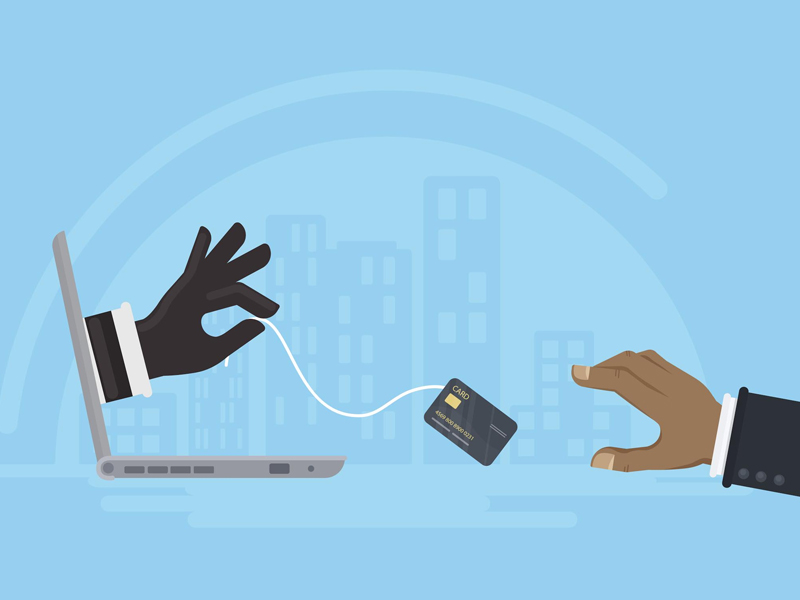By Greg Sullivan
Don’t Let Fraud Crack Your Nest Egg

More than 15 million Americans found themselves victims of identity fraud in 2016, according to a 2017 Identity Fraud Study conducted by Javelin Strategy & Research. That victim count represents a 16% increase over the previous year.1
If you are approaching retirement or in your retirement years, protecting yourself and your assets from scammers is a top priority. One reason that swindlers specifically target people who are well into their careers or in retirement is that this demographic typically has a sizable nest egg that can be tapped. In addition, people who are older are more likely to own their homes and to have good credit, which makes them attractive to fraudsters. Those from earlier generations may also have been trained to be polite to strangers and often find it harder to disengage quickly from unsolicited phone calls or unscrupulous salespeople.
Financial fraud ranges from small-scale operations in which scammers siphon relatively modest amounts from lots of victims, all the way up to billion-dollar Ponzi schemes like the one famously run by Bernie Madoff. Sadly, it also includes deceptive, if not always illegal, practices by people selling questionable investments as well as financial exploitation by family, friends, or caregivers.
High-Tech Thieves and IRS Imposters
With the proliferation of technology, more and more sophisticated schemes arise every day. Most of us are aware that we shouldn’t go ahead and wire money to any foreign princes we may or may not be related to, but just clicking on a suspect link, giving personal information to a telephone caller, or using your debit or credit card at the wrong outlet can lead to fraudulent charges, account takeovers, new accounts opened in your name, and a host of other bad things.
While some schemes are relatively crude and easy to spot, others can fool even tech-savvy people. Some thieves do their homework and may have learned personal information they can use to target you and convince you they are legitimate.
My own mom began receiving calls from the “IRS.” People tend to panic when the IRS contacts them, and these fraudulent calls can be aggressive, threatening arrest, revocation of drivers’ licenses, and deportation, all in an attempt to get you to make an immediate payment. The callers spoof numbers to make it appear on your caller ID that it is the IRS calling, and they may have details such as your name, address, and other personal information.
According to the IRS, more than five thousand victims have paid out $26.5 million to such scammers. Be aware that the IRS will never demand immediate payment of a tax bill over the phone, and will not call regarding unpaid taxes without having first mailed a bill. You are also entitled to an appeal process. All this is to say that any call you receive claiming to be from the IRS is very likely to be fraudulent. If you receive such a call, hang up immediately and report the call to the IRS.
Luckily, my mom knows that I handle all major financial matters for the family, so she was not tempted to make that urgent payment without consulting me. It’s a good general practice to tell any such caller that you will refer the matter to your attorney or financial advisor to resolve—that usually results in a hang-up.
5 Easy Ways to Protect Your Financial Information
Though financial fraud of various types is widespread and growing, here are five simple steps that will help you protect your assets from scammers:
- If a representative from an institution or a firm you deal with—your bank or your insurance company, for instance—calls and requests personal information, make sure to do a call-back. Locate an independently verifiable telephone number and place the call yourself.
- Never act based on an e-mail; if you are contacted by e-mail, make a call to the person using an independently verifiable telephone number and confirm instructions verbally. The same is true of postal mail. Call the person who sent the inquiry to make certain that the request is legitimate.
- Don’t use easy-to-guess passwords, such as a pet’s name or the name of a spouse or child, especially for bank and credit card accounts. Ideally, choose complex passwords that incorporate numbers, capital letters, and other text characters. Don’t use one password for several different accounts; if one is compromised by a breach, the accounts that share that password will also be vulnerable.
- For important online accounts, particularly bank accounts, set up dual authentication, so someone can’t get into the account based on user name and password alone. Dual authentication requires that the institution send a temporary code that you must input or that you answer a security question. It is far too easy for hackers to access accounts with user name and password.
- Do not click on computer links from people you do not know or that appear suspicious. If the e-mail was sent by someone you know, and you have doubts about links it contains, contact the person. Clicking on malicious links may lead to files that download malware, including info stealers, which can gather log-in credentials for online banking accounts, social media, and other online accounts.
While cybersecurity has been likened to an arms race, and thus we can never be 100 percent certain our information is secure, staying on top of threats gives us the best chance of protecting the retirement nest egg we’ve worked so hard to build.
Cheers,
Greg
To learn more about Greg or want discuss retirement visit, SBSB Financial Advisors today.
1. Javelin Research & Strategy, Press Release, 2017 Identity Fraud Study, February 1, 2017. Accessed July 23, 2017. Identity Fraud Hits Record High 154 Million US Victims↩